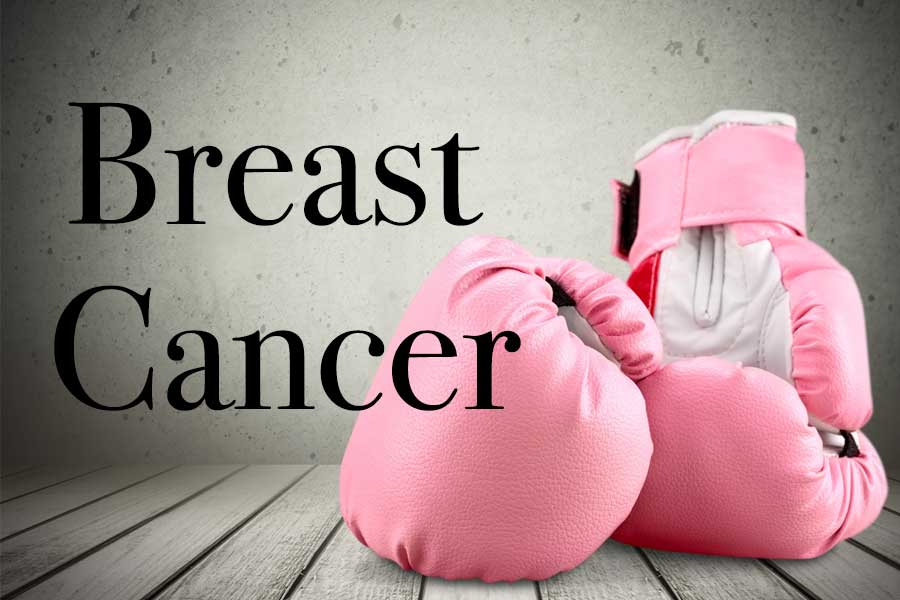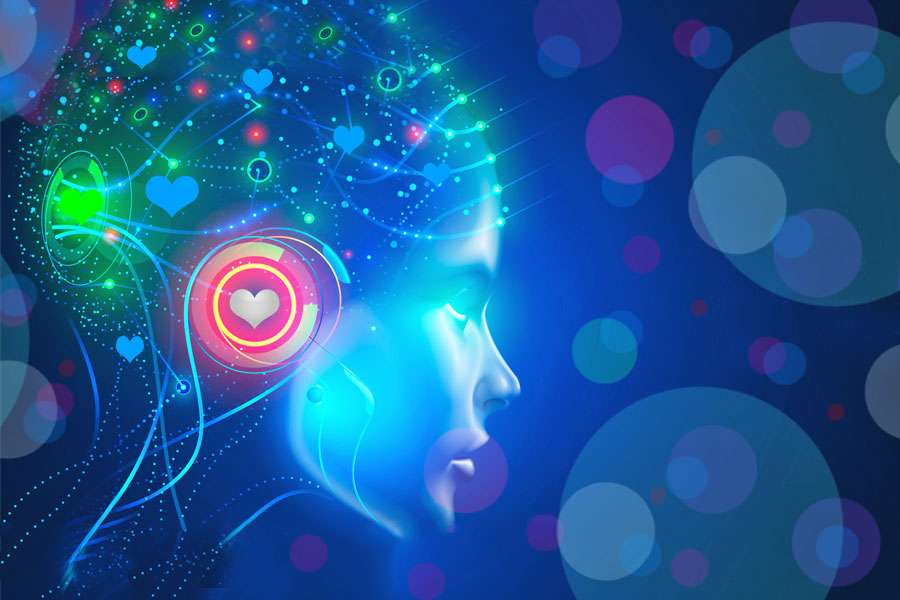Trusted for 25+ Years
Breast Cancer & Sexual Resources

Dr. Lisa Lawless, CEO of Holistic Wisdom
Clinical Psychotherapist: Relationship & Sexual Health Expert

What We Will Explore
This guide will explore the basics about breast cancer with things you may wish to consider for prevention and healing. In addition, we will explore resources for your sexual health, self-esteem, and relationship effects from breast cancer and its treatment.
What are the Signs of Breast Cancer?
One of the best things you can do to detect breast cancer early is to be aware of the signs. However, the trouble is that there are often no outward signs of breast cancer that you can see or feel, so getting tested is important.

If there are outward signs, the more common ones include a lump, an area of thickening, or dimple(s) in the breast. Less common symptoms include swelling, discharge, breast pain, redness, or an enlarged underarm lymph node. If you have one or more of these signs, it doesn't mean you have breast cancer. Most breast lumps turn out to be benign (not cancerous); in fact, eight out of ten nodes that women may feel in their breasts are benign.
 Breast Cancer Risks
Breast Cancer Risks
Hereditary & Breast Cancer
Five to ten percent of breast cancer cases are hereditary (from gene mutations passed on from a parent). The most common cause of hereditary breast cancer are in BRCA1 or BRCA2 gene mutations.
However, most women who get breast cancer don't have breast cancer in their families. There are many risk factors for breast cancer, and having it in the family is only one. If you're worried about getting breast cancer, talk to your doctor about your risk factors.
Male Breast Cancer (Chest Cancer)
About 1 out of every 100 breast cancers diagnosed in the US is found in cis males. While the percentage of men diagnosed with breast cancer is small, men should also give themselves monthly exams and note changes to their physicians. Trans men had a higher overall risk of breast cancer, so it is recommended they get mammograms over the age of fifty.
Taking Hormones (HRT)
If you've had breast cancer, most doctors will automatically say you cannot take HRT (also called MHT, menopausal hormone therapy, and sometimes ERT, or estrogen replacement therapy). Many doctors consider HRT risky because estrogen can stimulate the growth of breast cells (in both normal and cancerous cells). Thus, doctors may express concerns that HRT may increase a woman's risk of breast cancer recurrence or developing new breast cancer.
If you have severe menopausal symptoms that are not relieved by other means, try to find a doctor who will look closely at your case. There are choices in the type of estrogen, dose, and how it's given.
Aging
It is more likely to develop breast cancer as we age. About 80% of women each year are aged 45 or older, and about 43% are aged 65 or above when they are diagnosed with breast cancer.
- Birth - Age 39: 1 Woman in 231 Will Get Breast Cancer
- Age 40 - Age 59: 1 Woman in 25 Will Get Breast Cancer
- Age 60 - Age 79: 1 Woman in 15 Will Get Breast Cancer
Study Links Cholesterol To Breast Cancer
Plus-sized women with low levels of good cholesterol (HDL levels) seem to have a higher risk of postmenopausal breast cancer. That doesn't mean that HDL cholesterol plays an active role in cancer. However, it might signal that women with low levels of HDL cholesterol may harbor excess hormones, called androgens, which are linked to breast cancer but hard to measure. Thus, easier-to-measure cholesterol could help identify women at risk.
Overweight Women More Likely To Get & Die From Breast Cancer
Bodyweight may significantly predict breast cancer death in early-stage disease. In one study, researchers found women in the highest weight category of over 175 pounds to be the majority of patients with early-stage breast cancer. In addition, they had a 2.5-fold increased risk of dying from breast cancer than women in the lowest weight category of fewer than 133 pounds.
Breast Implants & Breast Cancer
Breast implants have not been found to cause or raise your chances of getting breast cancer. However, they have been linked to having a higher risk of getting anaplastic large-cell lymphoma (ALCL: non-Hodgkin's lymphoma). See more about this and more through our guide: Signs of Breast Implant Problems.
Breast Cancer Testing
Physical examination of the breast is one way to find breast cancer. Using a massage oil or cream can aid in moving around the breast to push in and feel for changes. Physicians can also do mammograms, an ultrasound, MRI, and PET scans to determine if cancer is present.
3D Mammograms
You may wish to request a 3D mammogram as they can detect more cancers than a standard mammogram alone. They are especially helpful in detecting breast cancer in those with dense breast tissue. Another reason to have a 3D mammogram is that 80% of cancer cases were detected using them, while traditional mammography only detected 59%.
In addition, it is also more common for a person to be called back for a 2nd standard mammogram to determine if there is something to be concerned about after having the first one. You may also have to have an ultrasound as well. Having a 3D mammogram may prevent you from having to come in for testing for a second time. This is because you are more likely to receive a false-positive result with standard mammograms. False-positive results occur in up to 12% of women, and 3D screening showed lower false-positive results than traditional mammography.
FDA Update On Mammography Regulations
On March 09, 2023, the FDA mandated a national standard for notifying individuals about their breast density. Those with dense breasts may be at a higher risk of false-negative mammogram results. This means these individuals may benefit from additional screening tests, such as an ultrasound or magnetic resonance imaging (MRI), in addition to mammography.
MRIs & Testing For Breast Cancer
MRI (magnetic resonance imaging) scans beat mammograms for finding tumors in women at high risk of breast cancer, but research suggests a far greater cost and the chance of unneeded biopsies. Those drawbacks make MRIs unsuitable for screening average-risk women, who are still advised to get regular mammograms starting at age forty.
However, better detection from MRIs, may make it worthwhile for women with faulty genes or a strong family history of breast cancer, such as when a woman's mother, aunt or sister has had the disease. MRIs are nearly twice as likely to detect tumors than standard and 3D mammograms in women who are at high risk of breast cancer. Some insurers already cover MRIs for women at high risk so cost may not be an issue for some patients.
When genetic factors make one more susceptible, such as the BRCA1 and BRCA2 genes, they should be counseled carefully about whether to try intensive screening or to have their breasts or ovaries removed.
If women do get an MRI, they should time it midway through their menstrual cycles when results are best, and they should go to centers capable of performing MRI-guided biopsies if a scan shows something that needs follow-up.
Mammograms Do Not Prevent Cancer
A common thing you will see on social media are women talking about the importance of mammograms, which is excellent because catching breast cancer early is essential. However, mammograms do not prevent breast cancer. What prevents breast cancer are things such as a healthy diet and exercise while avoiding things such as smoking, alcohol and using caution when using hormone replacement therapy (HRT).
One of the most significant increases of unhealthy behavior regarding breast cancer is drinking alcohol, even in the form of wine. It has become trendy among women, yet it is heavily linked to breast cancer rates. Please see our guide: Wine, Chocolate & Health to learn more about this.
In addition, there has long been one diet trend after another, leaving many consumers very confused about the best ways to avoid breast cancer. Please see our guide for the best diet to prevent any disease, including breast cancer: Nutrition Guide for Good Sex & Health.
Diagnosed With Breast Cancer
A cancer diagnosis is one of the most upsetting things that can happen, and whether it is you or someone you know, feelings of fear, being overwhelmed, angry, or depressed are all normal reactions. Yet you can get through this armed with clear information that respects who you are and puts you back in control through treatment, support groups, and education.
Breast Cancer & Self Image
In addition to the intense emotional, mental, and sometimes financial stress that a breast cancer diagnosis can cause, it can also affect how one sees themselves concerning appearance, self-worth, and sexually.
Some breast cancer treatments can leave only temporary effects such as hair loss; others can be permanent such as a mastectomy. Some cancer patients use wigs, hats, scarves, and other accessories for hair loss, while others embrace their baldness and positively identify themselves as breast cancer survivors. There is certainly no right way to deal with hair loss, and it is really about doing what is comfortable for you.


 For more permanent changes such as breast surgery, some women can opt to have reconstructive surgery to rebuild the breasts and nipples. There are even options for nipple tattoos when the entire nipple has been removed. Others opt for breast prosthesis (breast inserts held in bras), and some embrace their new body without breasts. Again, the most important thing is doing what is right for you.
For more permanent changes such as breast surgery, some women can opt to have reconstructive surgery to rebuild the breasts and nipples. There are even options for nipple tattoos when the entire nipple has been removed. Others opt for breast prosthesis (breast inserts held in bras), and some embrace their new body without breasts. Again, the most important thing is doing what is right for you.
Breast Cancer & Sexual Health
Breast cancer treatments can most certainly impact sexual functioning even beyond body image concerns. There can be loss of sensation, hormonal changes, and issues that affect the vagina, such as vaginal dryness and painful sex. This is why we have put together an extensive guide for all cancer patients and survivors on addressing sex and cancer. Please check out our resources, products, and tips for you and a partner if you have one.
See our Sex With Cancer Guide for more helpful information.





